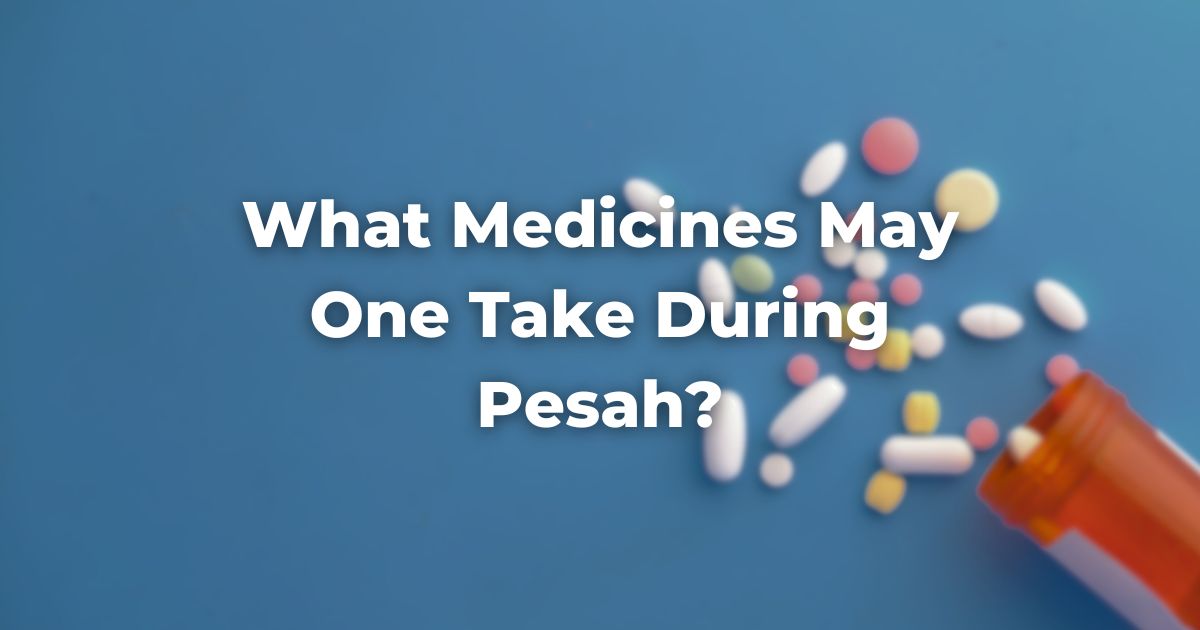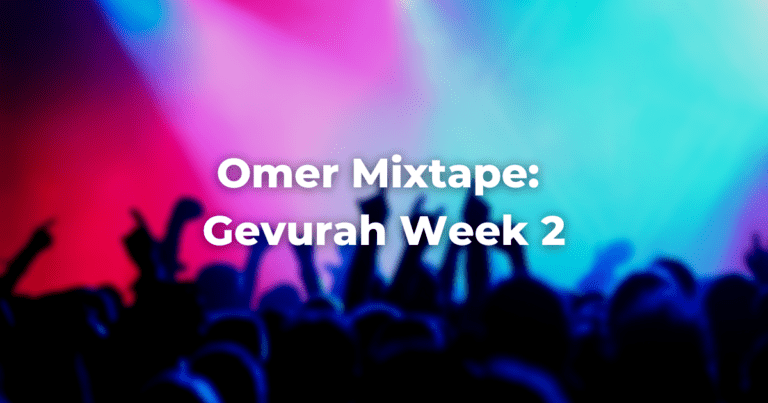If medicine is not food, why should there be any restrictions on taking it during Pesah?
The question arises because although medicine is not food, it is generally ingested like food (that is, orally) and often contains binders and substances derived from food. On Pesah, we are particularly strict about ingesting even a minute amount of hametz.
So the question really is, “Should medicine that may contain hametz be forbidden to use on Pesah?”
Judaism classifies three types of illnesses:
- Potentially life-threatening illness.
- Serious illness that is not life-threatening
- Minor irritations such as a headache
A Life-Threatening Illness
All halakhic authorities agree that an illness that is potentially life-threatening should receive the best possible medical attention. This includes all medications deemed necessary by the physician, without regard to issues of Pesah or kashrut.
This is due to the principle that pikuah nefesh, the saving of life, takes precedence over any other value or act (exceptions are made for situations such as destroying one life in order to save another).
An Illness That Is Not Life-Threatening
However, what about an illness that is not life-threatening?
Are we allowed to take all medications on Pesah, regardless of ingredients, or may only medications free of forbidden ingredients be taken?
Maimonides ruled (Rambam, Yesodei haTorah 5:8) that when a prohibited item is used to treat a non-life threatening illness, it is permitted to be taken. This is because it is not consumed in the manner we normally consume food, as it is not chewed but taken whole. In addition there is no enjoyment in the swallowing of the medication (other than the healing which hopefully follows) and no satisfaction gained from its taste.
Flavored Medications
Some medications are liquids or chewable tablets specifically flavored to be more palatable to the mouth. Most of these medications (though certainly not all) are for serious but non-life-threatening illness in children. Would these medications fall under a different category if they contain forbidden ingredients since they are ingested in a way similar to eating?
While some Orthodox authorities forbid such medication during Pesah, (unless under kosher supervision), others, including most Conservative authorities, permit it.
The reason is that although the medications are ingested in a way similar to food, they are never taken as (or in place of) food. Although their taste may be somewhat palatable, no one takes them for enjoyment, and they may be harmful if consumed in large quantities as one would with food.
Minor Irritations And Vitamins/Supplements
This last category includes minor discomforts such as muscle stiffness, non-debilitating headaches, and vitamins/supplements.
Since we are particularly strict with food at Pesah time, perhaps we ought to apply that strictness to non-essential medications? On the other hand, Pesah is, for many, their most joyous time of the year. Shouldn’t we do whatever we can to make this important family holiday more joyous because people feel healthier?
There is room here for both compromise and care.
Today, there are many over-the-counter medications, vitamins, and supplement companies that are under kosher supervision during the year.
One may purchase pills/capsules that are certified kosher, vegan, and gluten-free (with no oats, other grains, or alcohol) prior to Pesah, and they can be used during Pesah without being certified as “kosher for Pesah.” (This unusual rule states that items purchased prior to Pesah without specific Pesah supervision that are grain/alcohol-free can be used on the holiday, though one cannot purchase such an item once Pesah has already begun.)
Once Pesah has begun, only over-the-counter medications that are certified as “kosher for Pesah may be purchased for use.
Ruling (Psak)
All medications, including flavored medications, may be taken on Pesah regardless of their ingredients, whether for minor discomforts or serious illnesses.
This is not only for the reasons stated above, but we are also concerned that some people, due to the strictness of Pesah, might hesitate to take a necessary medication.
By permitting all medications, we hope to ensure that such people are encouraged to continue during Pesah to take the medications their physicians have prescribed for them, as Jewish tradition would instruct us to do. Over-the-counter medications, vitamins, and supplements should be purchased prior to Pesah and not contain any grain or grain derivative.
Click here to read the teshuvah in full.
This is the approved position of the Committee on Jewish Law and Standards (CJLS) of the Rabbinical Assembly.
Author
-

Rabbi Steven Kane is currently the senior rabbi at Temple Beth El in Cedarhurst, NY. He previously served as the rabbi of Congregation Sons of Israel in Briarcliff Manor, where he is now rabbi emeritus. He began his career as Assistant to the Librarian at JTS, overseeing the Rare Book and Manuscript collection of the library. Rabbi Kane has served on the RA Committee on Jewish Law and Standards (CJLS) and is currently President of the Lower Hudson Valley RA. As a graduate of the Shalom Hartman Institute Rabbinic Leadership Initiative, he is a Senior Rabbinic Fellow of the Shalom Hartman Institute.
View all posts





